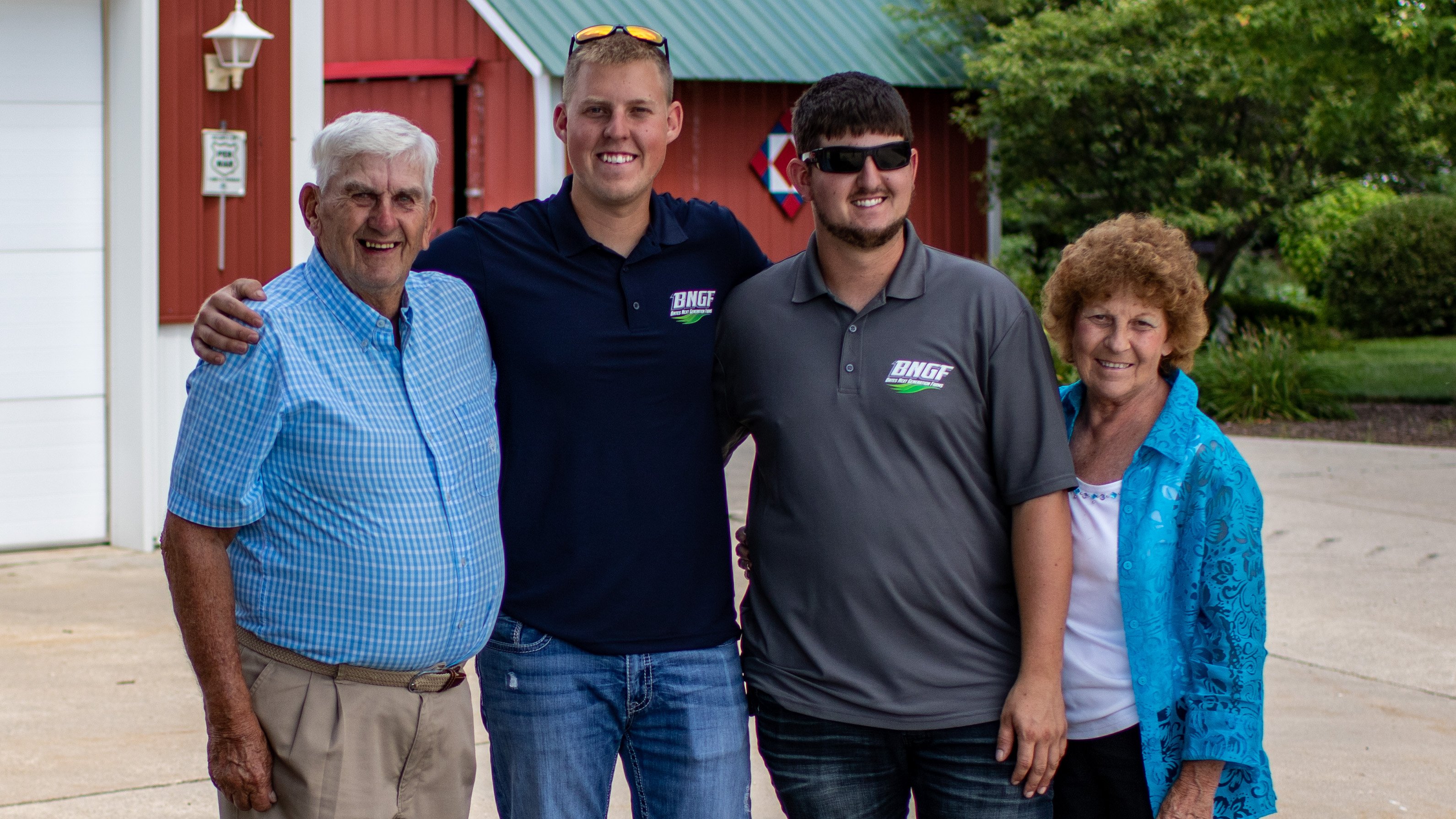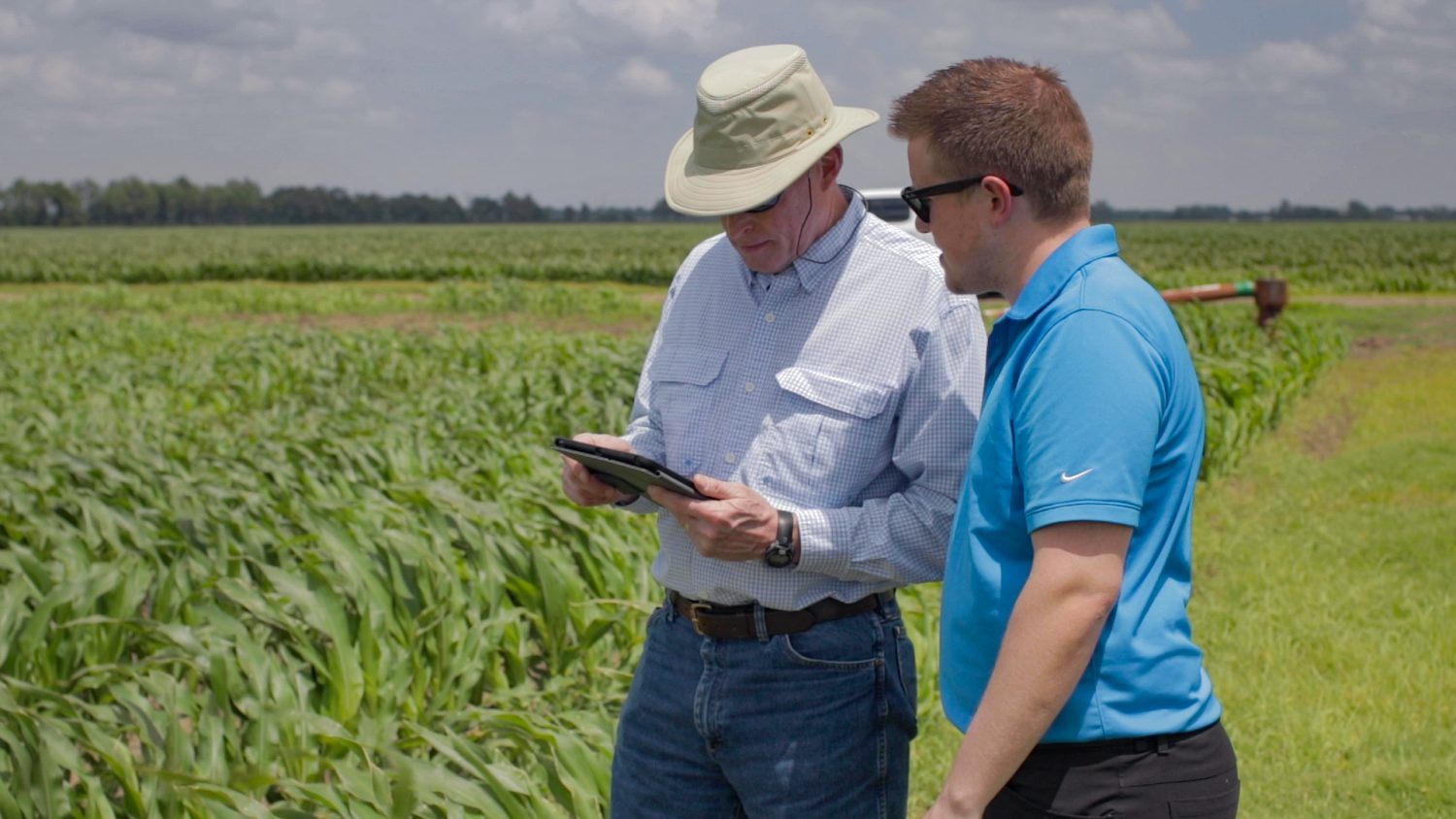One of the biggest areas of frustration we hear about from farmers is recordkeeping. We all know how important it is to keep good records, but there are so many aspects to manage.
- Are records up-to-date?
- Are they accurate?
- Who needs access to what, and how do they get it?
Not to mention the sheer amount of data modern farms collect—all this can leave growers with information overwhelm.
Because recordkeeping is one of the biggest frustrations for farmers, it’s also one of the biggest areas of positive change when an operation adopts farm management software (FMS).

Farm data accuracy
Data isn’t as valuable if you can’t be 100% sure it’s accurate. With farm management software, accurate data isn’t a goal, it’s more of a given.
Immediate, digital entry. One way farm management software helps ensure accuracy is that data can be entered right away. Information can be inputted into the system immediately after it’s known—there’s no more putting numbers down on paper that eventually (hopefully) make their way back to the office.
With immediate, digital entry, you’ll also be done with the days of trying to decipher handwriting—no more trying to determine whether that’s a 1 or a 7 because it was written on a tractor or scribbled quickly on scrap paper. Better accuracy is inevitable when you can get the numbers where they need to be right then and there.
Scott Burdge, Equipment Manager at Lone Star Farms in Sunray, TX, recalls back to paper records and loose pieces of paper that would make their way to him, before finally getting to the back office. He recognizes that the electronic way of today is much better in terms of accuracy. “It may have the same data, but going straight from their iPad on the handheld to the office for the inventory people, it’s more accurate just because it delivers it more reliably,” Burdge says.

One system. Another way farm management software ensures accuracy is that all the data is in one system. You no longer need to spend energy making sure you’re accessing the most recent version of a document. Everything is in one place, so there’s no hesitation that you might not be entering things in the right location.
One system also means that everything that’s going on with your whole operation is accurate. Kerri Mehmen of MBS Family Farms in northern Iowa appreciates this. “It’s starting to tie our whole system together,” she says. “From the planning and budgeting piece to the work orders, down to the inputs and all the way through to the moment I sell the grain and make sure we’ve been paid. It’s nice to have one system that helps ties the whole entire process together step-by-step, making sure the information is correct from beginning to end.”
Accuracy is key when margins are tight. Justin Crownover of Lonestar Farms agrees: “As tight as margins are, there's no room for error. And even if margins are good, why do you want to not capture it all?”
Data accessibility
Accurate data is a key benefit, but accessibility is another benefit of FMS that growers find just as important. Records can be accessed remotely, and by multiple people at once.
Remote access. No matter where you are on the farm—or even when you’re away from the farm—you can look at what’s going on. “I don't have to go to a manilla folder back in the stockroom and look for something. It's just right there,” says Michael Kitchen, Inventory Control Specialist at Lone Star Family Farms in Sunray, TX.
Kitchen continues: "I could be vacationing and somebody asks me a question and I can go to the app on my phone and pull up information right there. I don't have to worry about coming to my computer, which is 360 miles away.”
Multiple-user access. It’s not just one person who can access data from wherever they are—it’s anyone who needs access. From the fields to the office, with farm management software everyone can see what they need to see. Michael Bates, operations manager at Bates Farms in Rockton, IL, appreciates this benefit. On his farm, he spends a lot of time in the field, while his partners spend more time in the office, and the communication and information flow makes the work much more efficient. “It's really a great opportunity to put information into a platform where it's attainable by other employees or family members,” he says.
For the Bates, accessibility is huge. “I think the biggest benefit of the platform is having that digital storage space to record all of our data, and to access that from any location, anytime, whether on a phone, iPad, or computer,” he says. “It’s extremely convenient.”

Real-time updates
Let’s review: farm management software gives you confidence that your records are accurate, and they’re accessible from anywhere and by multiple users. The icing on the cake? Your data is real-time—you can be sure the information is the most up-to-date possible, entered and available moments after the work is complete.
Real-time records are changing things significantly, and growers are excited about the benefits of real-time data.
Paul Sproule of Sproule Family Farms: “The reason I pursued technology is I wanted information and I wanted it quickly. I've got that yield data before all the trucks are dumped. It gives you real-time data at your fingertips within seconds.”
Trey Hayden of Ritter Agribusiness: “It’s invaluable to have the phone and iPad in the field with you and update your system on-the-go. It's a lot easier and a huge time saver."
Michael Kitchen of Lonestar Family Farms: “Because in the past, [the team working in the field] would just write it down on a piece of paper and put it in their back pocket. I'd be lucky to get it seven days later. So it's very handy. It's real time. I love it."
“We don't have to wait until the work is done to know what happened, we can see it all in real time."
Future analysis
A final key benefit of farm management software for recordkeeping is the ability to pull up and analyze data to make decisions for the future. Whether it’s to look back at your records and results from last year, or to look back over the past decade, all the information is right there at a glance.
Year-to-year decisions. You have many decisions to make every year and the variables are always changing. Farm management software gives you historical data on your fields—you can see at a glance what you did before, from year to year, and how it turned out. Jason Brewer at Ritter Agrifinance in Marked Tree, AR, notes how farm management software can keep you on track from year to year: "We've made several minor saves, especially around crop rotation. Having the ability to go through previous planting history by field with my growers keeps us on our rotation goal."
Paul Sproule, of Sproule Farms in Grand Forks, ND, sees a huge benefit of FMS in decision-making from year to year: “The biggest thing is we have historical data on our fields now that we've had for a number of years,” he said. “We can look at our yields, inputs, and everything that we've done on a particular field.”
Mike Sproule adds that FMS relieves him of the stress of remembering the details of his many decisions. “We might have a plan in place, and then we might obviously deviate from the plan. So when you've made changes, you can go back to look and say, ‘Yes, this was the decision I made,’” he said.
“You always have the footprint of what you did last year to the next year, and the year after. It's the proof right there at your fingertips."
Future and legacy planning. In addition to being able to analyze the work and results from year to year, farm management software records help in longer-term planning, something that's especially helpful when transitioning the operation to future generations. Michael Bates of Bates Next Generation Farms in Rockton, IL, sees strong value in recordkeeping for passing farm data to the next generation. “I'm sure as with most family operations, the information has always been just in dad and grandpa's head,” he says. “It hasn't been down on paper or on a computer platform where everybody has access to it.”
Bates realizes that having a farm management software system will be especially valuable as time continues and one day his heirs take over the family farm. Important historical data will be retained within the cloud, not lost as time passes, setting future generations up for success.

"We've just barely scratched the surface"
Growers are typically amazed at the shift in their recordkeeping after adopting FMS—they’re often left wondering how they ever did it the old way. Records that are accurate, accessible from anywhere by multiple people, real-time, and easily analyzed for future decisions are invaluable.
When growers adopt farm management software, we sometimes hear them say they feel it’s just the beginning of the advances for their operation. “My favorite part is that we’ve just barely scratched the surface,” says Parker Merritt of MBS Family Farms in northern Iowa. “There’s so much potential for the data to help with profitability, efficiency, saving costs. That's the exciting part.”
Interested in going digital with your recordkeeping? Learn more about Conservis, the leading independent farm management software system.

